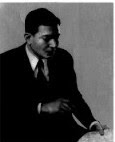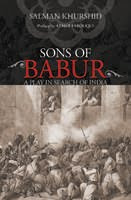Homosexuality, AMU and Chughtai

Shrinivas Ramchandra Siras and his suspension by the Aligarh Muslim University has triggered a debate on an individual's right to privacy and moral conduct of a professor on the campus. Siras, who was the chairman of the department of Modern Indian Languages was suspended after he was caught indulging in sex with a rickshaw puller.
While the debate centres around the privacy-morality issue, is there an investigation being done on whether Siras used his influence and took undue advantage of students? There has been no comment or concern from the authorities at AMU regarding this.
Instead, all we hear is that homosexuality is an unacceptable behaviour and hence should be punished. So while a camera crew invaded Siras's house to film him in the act (and succeded), and the University promptly acted in suspending him, what is being done to find out if there are any victims? Was Siras actively looking for partners on campus? Was he taking undue advantage of his position? All these issues have been engulfed by the rants of 'homosexuality is evil'.

More than 60 years back, there was a similar (perhaps bigger) uproar when a celebrated writer touched upon the issue of lesbianism in a fictional story. Ismat Chughtai (pic left), who studied in Aligarh, had to face an obscenity charge in the Lahore high court for her story, Lihaf.
Chughtai received several hate mails directed at her family and even her infant daughter. The issue created a lot of tension within her household.
Lihaf explored the relationship between a woman and her maid and was first published in 1941, and later went on to inspire Deepa Mehta's controversial movie Fire in 1996.
It was in December 1944, that Chughtai, who was living in Bombay, was served court summons from the Lahore high court in connection with the case. Giving her company was Saadat Hasan Manto, who too was served a summon just like her, asking to be present in the court in January 1945. Manto was being charged with obscenity for his short story Bu.
I present a small part from Kaghazi Hai Pairahan by Ismat Chughtai translated in English by Tahira Naqvi and Muhammad Umar Memon. It describes a day at the Lahore high court:
There was a big crowd in the court. Several people had advised us to offer our apologies to the judge, even offering to pay the fines on our behalf. The proceedings had lost some of their verve, the witnesses who were called in to prove that “Lihaf” was obscene were beginning to lose their nerve in the face of our lawyer’s cross-examination. No word capable of inviting condemnation could be found. After a great deal of searching a gentleman said, “The sentence ‘she was collecting ‘ashiqs ’ (lovers) is obscene.”
“Which word is obscene,” the lawyer asked. “‘Collecting,’ or ‘‘ashiqs’?”
“The word ‘‘ashiqs,’” the witness replied, somewhat hesitantly.
“My Lord, the word ‘‘ashiqs’ has been used by the greatest poets and has also been used in na‘ts. This word has been given a sacred place by the devout.”
“But it is highly improper for girls to collect ‘‘ashiqs,’” the witness proclaimed.
“Why?”
“Because … because … this is improper for respectable girls.”
“But not improper for girls who are not respectable?”
“Uh … uh … no.”
“My client has mentioned girls who are perhaps not respectable. And as you say, sir, non-respectable girls may collect ‘ashiqs."
“Yes. It’s not obscene to mention them, but for an educated woman from a respectable family to write about these girls merits condemnation!”
The witness thundered.
“So go right ahead and condemn as much as you like, but does it merit legal action?”
The case crumbled.
While Chughtai and Shahid Dehlavi (the publisher) stayed in Lahore at the home of one M Aslam, a prominent resident of the city, they were constantly asked by him to apologise in court to help close the case. As he insisted, the duo asked him if the city's moral brigade was responsible for the case!
Till the time Chughtai died and even for her obituaries, Lihaf continued to dominate over her other masterful works. I hope it is not the same for AMU, and this scandal does not overshadow the past laurels and the future goals of this university, which is a proud legacy of Sir Syed Ahmed.


Interesting piece! The scholarly works sometimes become controversial as we think the way morals and ethics dictate us instead of individuals doing that.
ReplyDeleteRegards
I agree with the author that investigations into whether Siras misused his position may be completely overlooked in this kind of ranting. We need to refocus on priorities, in such matters. Ismat Chugtai needs to be venerated and celebrated. In a rapidly coming-of-age India, where the Women's Representation Bill may be passed tomorrow, her vision and literary contribution decades ago, needs to be recognized at least now.
ReplyDeleteThank you for your comments Dr Dalwai and Kabir.
ReplyDelete